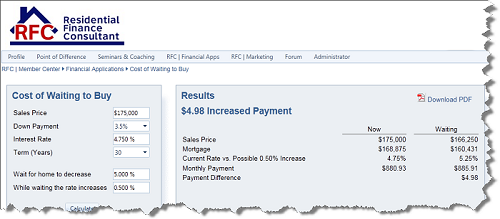The holiday season is a time when many people begin thinking about buying or selling a home in St. Charles or St. Louis. With holiday spending over, it is a very important time to think about protecting your credit and your identity as you think about that new home in St. Charles or St. Louis.
Here’s an article I came across that provides a nice checklist to help you get ready for the home buying or home selling period.
 If you are listing your home for sale, and/or preparing to buy a home, it’s important not only to protect your credit, but to guard against credit or identity theft as well as the theft of valuables. From Bankrate.com, here is a checklist that can help you do that during the buy/sell transaction period:
If you are listing your home for sale, and/or preparing to buy a home, it’s important not only to protect your credit, but to guard against credit or identity theft as well as the theft of valuables. From Bankrate.com, here is a checklist that can help you do that during the buy/sell transaction period:
- Apply with care –Be mindful when applying to multiple lenders. To some versions of the FICO software, all applications submitted within 30-45 days of each other only count as one hit on your credit report. However, many lenders may still use older versions of the software. Play it safe by submitting all applications in a 14-day period. This will ensure that your credit report doesn’t show multiple hits, which will in turn better your overall score.
- Prepare for lookers – When selling your home, pack up small, valuable belongings before strangers begin to walk through the house. Additionally, all bills or financial papers should be put into a locked box or drawer. Protecting your finances and account numbers should be your number-one priority because identity and credit theft can happen.
- Protect your documents: When buying a new home, only potential mortgage lenders need to see all of your personal information. Agents and sellers only need to know how much you can afford. When dealing with a lender, stick to the same representative to minimize the number of people who have access to your documents. Avoid sending any files with your social security number through email. Opt for mail or fax instead.
- Stay on top of your finances: Even if you are on top of paying bills on a monthly basis, you may want to consider checking into your accounts weekly. By logging into your credit card accounts regularly, you can make sure that all of the charges are legitimately yours. Credit watch services are also a good idea. If a fraudulent charge is made, the service will pick up on it and alert you of the charges. It’s important to act quickly with regards to your credit.
Copyright© 2011 RISMedia, The Leader in Real Estate Information Systems and Real Estate News. All Rights Reserved. This material may not be republished without permission from RISMedia.
A top real estate agent can help you make an informed decisions about how to make your new house truly yours. My team specializes in St. Charles County and St. Louis County. If you are considering selling your home, please contact Sandra Meranda and I’ll get you moving!





